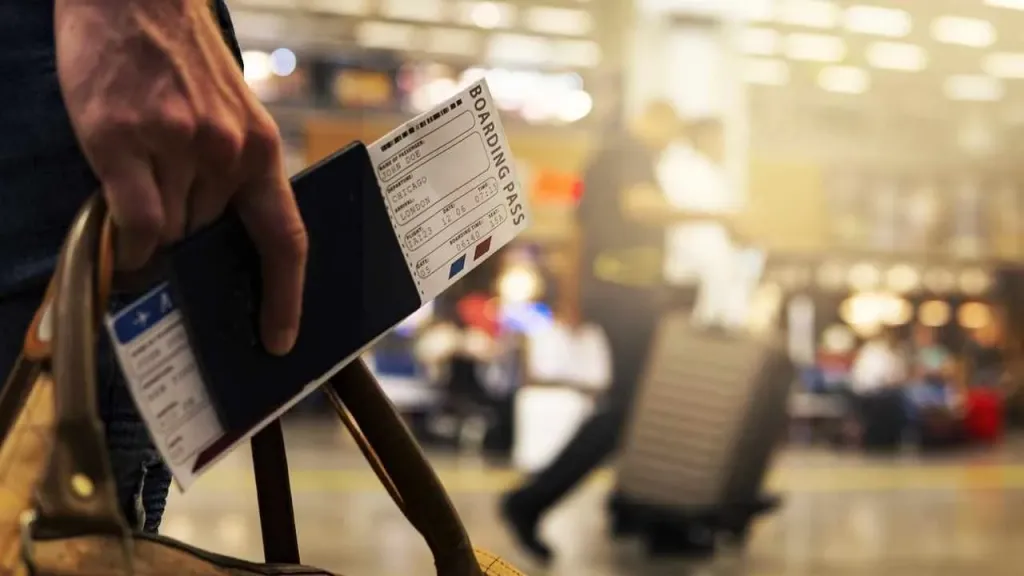How AI is changing the way you book airline tickets

Delta Air Lines, one of the country's largest carriers, is making headlines for its ambitious rollout of artificial intelligence-powered ticket pricing. Instead of fixed fares, Delta is using AI to make airfare more personal than ever. Instead of fixed prices, the system now analyzes your habits, booking history and even the time of day to predict what you might pay.
By the end of this year, Delta aims to set 20% of ticket prices dynamically using AI, a sevenfold increase from just a year ago. This high-tech approach could result in better deals or higher costs depending on your individual circumstances and shopping habits. Let's take a look at how it works, why Delta's betting on it and what it means for your wallet.
Get my best tech tips, urgent security alerts and exclusive deals delivered straight to your inbox. Plus, you’ll get instant access to my Ultimate Scam Survival Guide — free when you join my CYBERGUY.COM/NEWSLETTER
? What is AI-powered ticket pricing
Traditional ticket pricing relies on fare "buckets," where customers are grouped into categories based on when and how they book their tickets. Delta's AI ticket pricing system eliminates static rates, instead analyzing real-time information to calculate what a specific customer might be willing to spend on a seat for each particular flight.
Delta President Glen Hauenstein describes this as a reengineering of pricing, calling AI a "super analyst" that works 24/7, seeking the optimal price for every traveler, every time. The airline has partnered with Fetcherr, which provides the underlying technology and also supports other global airlines.
? Why Delta wants personalized pricing
Let's be honest. Airlines aren't adopting new, high-tech pricing systems to make less money. Delta says early results from AI-driven pricing show "amazingly favorable" revenues. The airline believes that with AI, it can maximize profits by more precisely matching fares to what each passenger is willing to pay, based on a wide range of data inputs, from booking history to market trends. Delta's strategy is simple — a price that's available on that flight, at that time, to you, the individual.
? How does this affect travelers
If you've ever wondered why airfare fluctuates every time you check, get ready for even more volatility. Delta's system could theoretically offer you a different price than someone else for the exact same seat, calculated in real time by AI.
Pros: You might get special offers or early discounts if the AI needs to fill seats.
Cons: It becomes much harder to know if you're getting a "fair" deal because the price shown is purely based on what AI thinks you'll pay, not what everyone else pays.
Some privacy advocates worry this could disadvantage customers who lack the means or time to search for the best deals, potentially charging the highest prices to those unable to shop around.
We reached out to Delta for a comment, and a spokesperson provided CyberGuy with this statement:
"There is no fare product Delta has ever used, is testing or plans to use that targets customers with individualized offers based on personal information or otherwise. A variety of market forces drive the dynamic pricing model that’s been used in the global industry for decades, with new tech simply streamlining this process. Delta always complies with regulations around pricing and disclosures."
Industry impact and growing criticism over AI ticket pricing
Delta's transparency regarding this shift has drawn national attention. Other airlines are already testing their own AI fare systems, and experts expect the industry to follow suit. Yet, privacy advocates and some lawmakers are voicing strong concerns. Critics argue that letting AI determine pricing behind the scenes is, in the words of Consumer Watchdog, like airlines "hacking our brains" to find the maximum price we'll accept.
The legal risks are still emerging. While price variation based on demand or timing is not new, using AI for ultra-personalized pricing raises uncomfortable questions about discrimination and fairness, especially since prior research suggests that poorer customers often receive the worst deals.


